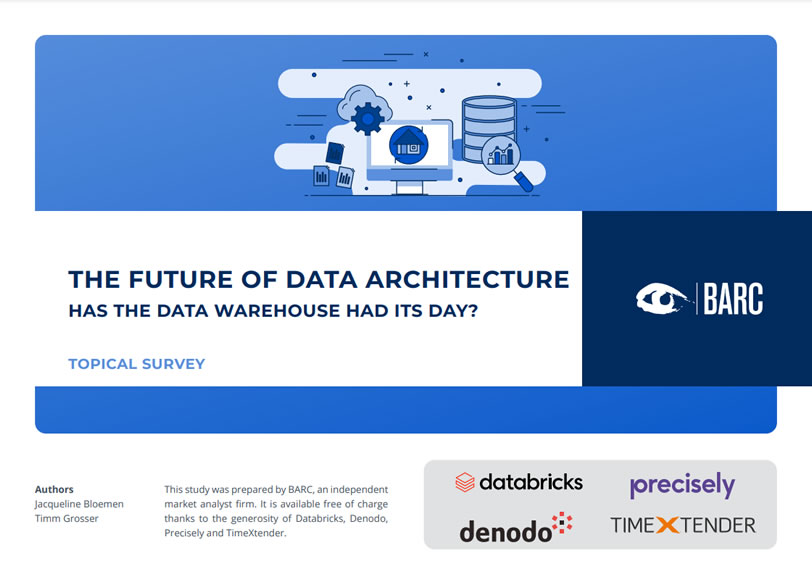Analyst Report
The Future of Data Architecture
Data Lakehouse, Data Fabric, Data Mesh: Modern approaches to simplifying data
Data hub, data fabric, data mesh –which remedies help overcome data silos and make data architecture future-proof?
Data warehouse, data lake, data lake house: Which data architecture is best for the data-driven enterprise is a subject of ongoing debate. In principle, the approaches follow a similar basic idea: they physically move data to one location to store and prepare it there. In the face of growing data volumes, this large-scale data movement is not a viable concept.
Data-driven companies need a modern, future-proof data architecture that meets flexibility requirements. While it must take into account the actual complexity of the existing data landscape, it must do so without further complicating it. Which approaches are currently seen as promising? Do I need a data fabric or data mesh? An integrated data hub or data as a network?
This study examines the new or enhanced data architecture approaches companies are currently taking and why the data architecture directions enterprises are currently choosing and the experience they have gained so far.
As so far it analyzes whether companies are seeing a return on investment in terms of reducing data latency and overcoming data silos.
Key questions:
- Are classic data architecture concepts such as data warehouse,
data lake, data lakehouse viable for the future? - What will work for today’s needs? What will we need in the future?
Are broader data architecture concepts being pursued for the
future, what are they and what benefits are expected? - Does data fabric play a role in future planning? What is new about data fabric compared to existing concepts, architectural approaches and technologies?
- Can a data fabric be successful without a data mesh?
Participants around the world were surveyed, with most responses coming from Europe. The BARC study examined the current architecture approaches of companies of different sizes from various industries. Participants were asked to rate the skills and competencies in the handling of data in their company compared to their main competitors.
Get the results and download the full BARC Study.
